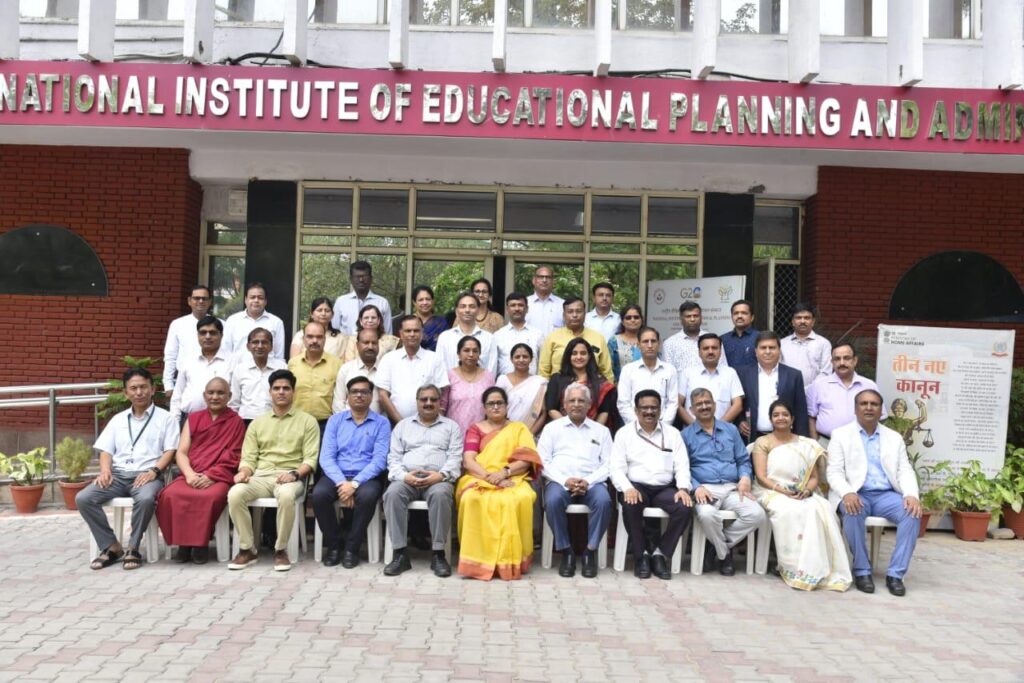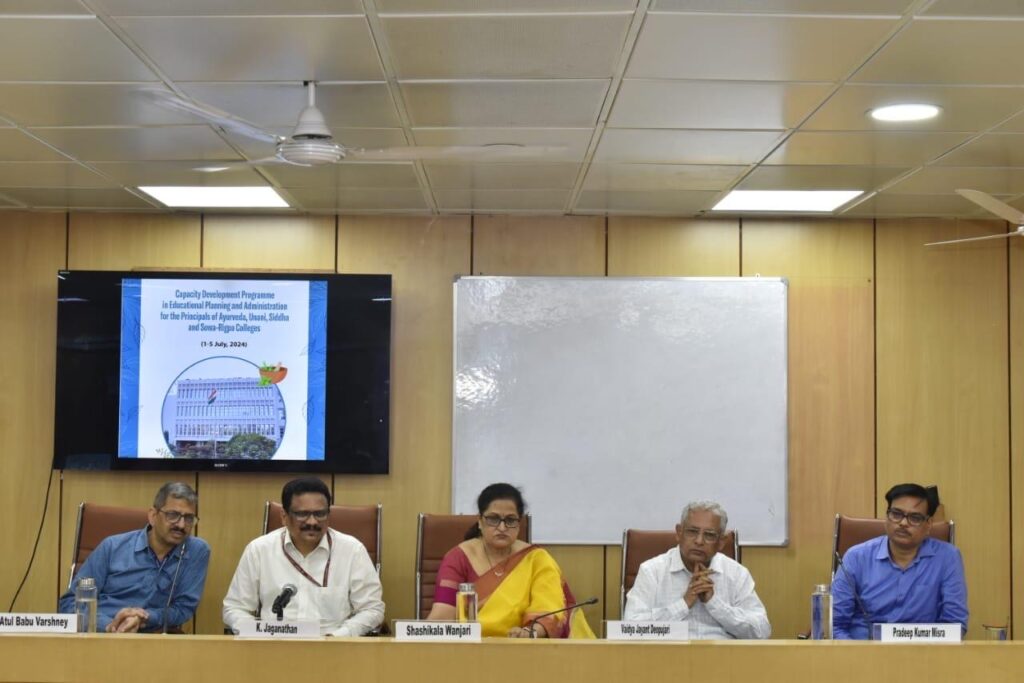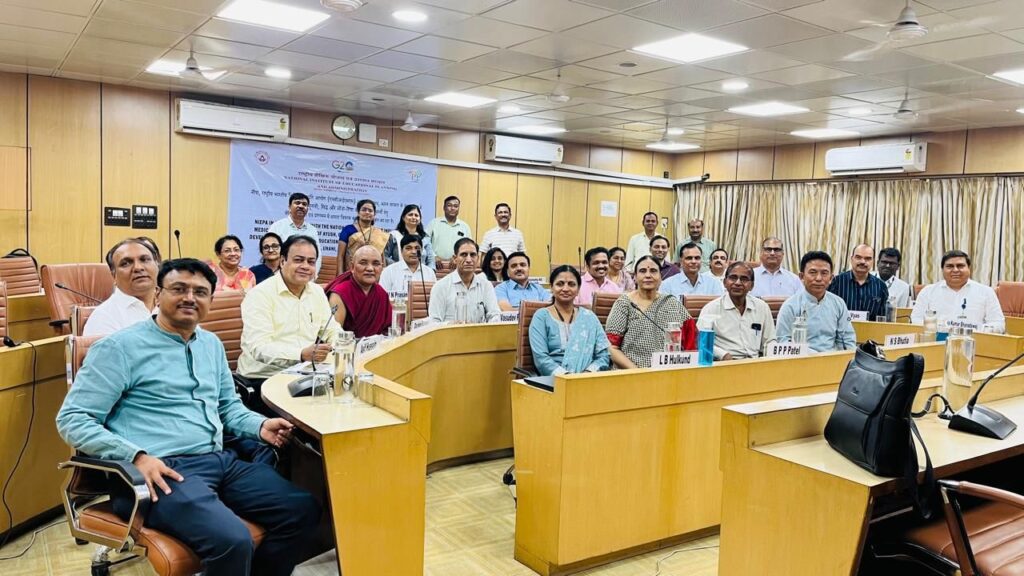
NIEPA (National Institute of Educational Planning and Administration) and NCISM (National Commission for Indian System of Medicine) organized a capacity-building program from 1-5th July 2024 under Prof. Shashikala Wanjari, Vice Chancellor of NIEPA and Program Director, Prof. Pradeep Kumar Misra, Director, Centre for Policy Research in Higher Education, NIEPA and Program Coordinator, Assistant. Prof. Dr. V. Sucharita, Department of Educational Administration, NIEPA. This program’s primary objective was to ensure that education is imparted, managed, and improved at all levels in the Indian healthcare system. As stipulated in the NCISM Act, 2020, the Board of Ayurveda, Board of Unani, Siddha, and Sowa-Rigpa shall determine and promote the education levels at the undergraduate and postgraduate levels. A competency-based dynamic curriculum shall be developed at all educational levels. A board’s mandate includes setting guidelines for establishing medical institutions, defining the standards for courses and examinations, and defining the standards and norms for infrastructure, faculty, and research quality. Besides these responsibilities, the Boards are also responsible for facilitating the development and training of faculty members.

This program was designed for the principals of Ayurveda, Unani, Siddha, and Sowa-Rigpa colleges. It was conducted face-to-face at NIEPA, New Delhi, and comprised of 20 batches of programs taught by NIEPA faculty and outside experts. Professor Dr. Ngawang Soepa Bhutia, principal of Men-Tsee-Khang Sowa-Rigpa Medical College and Hospital, Dharamshala has participated in the training accompanying 32 principals of different institutes.

A range of themes of training was covered during the program such as NCISM Regulations and Implementation, Team Building and Conflict Management, Medical Assessment and Rating, Good Governance and Ethics in Institutional Management, Research Funding and Collaborations, Administration and Management of the Institution, Technology for Teaching, Learning, Assessment and Governance, Learning Management System for Teaching, Learning and Assessment, Managing stress, Equity, Diversity, and Community Engagement, Hospital Administration and Management, Financial Planning and Management, General Financial Prudence, Institutional Performance Management and Development, Leadership and Decision Making, and Managing Intellectual Property Rights.

